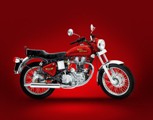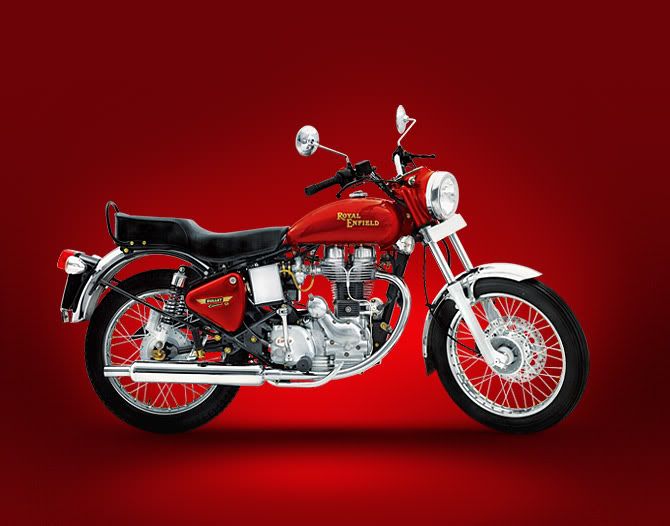EnfieldMotorcycles.in is the blog for all Royal Enfield enthusiast where we live, breathe, and eat Royal Enfield Bullet . We not only keep you informed of the news about Royal Enfield originals, but also give custom bikes and historical bikes a lot of attention. You can also find with us the best Enfield related movies and crazy stunts etc. We are testing and reviewing new models of which a complete relief will be shown on our site. Finally, we have technical tips, for example, how to properly get engine through the winter.
Read more
The new Royal Enfield single-cylinder 500cc unit construction engine (UCE) supported by electronic fuel injection was first debuted as 2009 motorcycle model year.
The UCE replaced the 70-year-old Royal Enfield cast-iron engine, which had the distinction of being in production longer than any other motorcycle engine in history but ceased production in 2008.
The UCE was amongst the most standard engine designs post World War-II era, where the unit construction integrates the casting assembly of the engine, gearbox and clutch. This technology reduces the friction between the tightly-knit movable parts and hence lowers the transmission losses.
Unit construction is a term used to describe motorcycle design where both the engine and gearbox are an integrated unit within the same casing. Engine and transmission may or may not share a common oil supply. Prior to unit construction, the engine and gearbox had their own separate casings and oil reservoirs and were connected with additional components, usually a chain drive, either exposed or in an oil bath primary chaincase. Early engine design had been of Pre-unit construction where engine and gearbox were in separate casings. The primary chaincase was usually made of pressed metal, but some were cast.
The advantages of unit construction are:
The chief advantage of separate construction is the ease of removing gearbox or engine separately for maintenance, or for complete gearbox replacement, with stronger gears, or more gears, or better spaced gears.
Unit construction is a term used to describe motorcycle design where both the engine and gearbox are an integrated unit within the same casing. Engine and transmission may or may not share a common oil supply. Prior to unit construction, the engine and gearbox had their own separate casings and oil reservoirs and were connected with additional components, usually a chain drive, either exposed or in an oil bath primary chaincase. Early engine design had been of Pre-unit construction where engine and gearbox were in separate casings. The primary chaincase was usually made of pressed metal, but some were cast.
The advantages of unit construction are:
- fewer external oil lines to leak/fracture
- no external drive connecting engine and transmission, thus simplifying maintenance
- mounting in the frame is simpler - no need to align engine and transmission within frame
- the combined casting may be stronger or lighter - hence more easily used as a stressed member of the frame.
The chief advantage of separate construction is the ease of removing gearbox or engine separately for maintenance, or for complete gearbox replacement, with stronger gears, or more gears, or better spaced gears.
Another technology used in the bike is electronic fuel injection (EFI) which replaced the Lean-Burn Mikuni CV Carburetor engine. The EFI better controls the air-fuel mixture ratios at different speeds and riding conditions.
A better cooling alloy cylinder, stronger crankshaft and connecting rod, improved oiling and a host of other features are all part of the improved Royal Enfield UCE engine.
The UCE 500 EFI was originally unveiled at 2008 Motorcycle Shows in Cologne, Germany and Birmingham, England, although it took until a few years for the news units to hit the U.S. market.
The new model is more powerful, technically advanced and more environment friendly. Important to long time RE motorcycle enthusiasts, it also sport an authentic classic look that reflects original British motorcycle styling.
The old cast-iron engine which was heavy, less efficient, more space consuming and wasn't very efficient either. The new engine produces 27.5 bhp of power and 41.3 Nm of torque at just 4000 rpm.
The lazy nature and the lowly rpm at which the peak rpm is delivered makes for a very commuter friendly experience through slow moving traffic, with the bike pulling with aplomb in low revs and high gears.
The UCE powerplant is mated to a five-speed gearbox. The gearshifts are spongy and relatively trouble free for an RE. It could take time getting used to the power delivery and the gearshifts but once familiarized, this motorcycle engine won't let you down.
The engine feels substantially refined when compared with its predecessor and transmits just the right amount of vibration to the handlebars. All you need to reach a three-digit speeds is a full twist of the throttle.
As well, with the new UCE, Royal Enfield became the first motorcycle manufacturer in India to produce and sell a U.S. DOT and Euro-III compliant motorcycle.
Engine: Single Cylinder, 4-Stroke, Spark Ignition, Air Cooled, OHV, UCE
Cubic Capacity: 499 cc
Engine Output/Torque: 27.5 BHP / 41.3 Nm @ 4000 rpm
Fuel System: Electronic Fuel Injection (EFI)
Electrical: 12V System
Ignition: Electronic
Transmission: 5-Speed gearbox with left side gear shift
Cubic Capacity: 499 cc
Engine Output/Torque: 27.5 BHP / 41.3 Nm @ 4000 rpm
Fuel System: Electronic Fuel Injection (EFI)
Electrical: 12V System
Ignition: Electronic
Transmission: 5-Speed gearbox with left side gear shift
courtesy : ultimatemotorcycling.com
Related Posts by categories
Show your Love for Royal Enfield !!

Cleaning your Royal Enfield
An exhaustive article about cleaning and maintaining your royal enfield !!

EFI Made Easy
Everything you need to know to take care of the system on your new EFI Royal Enfield in one short article.












Post a Comment